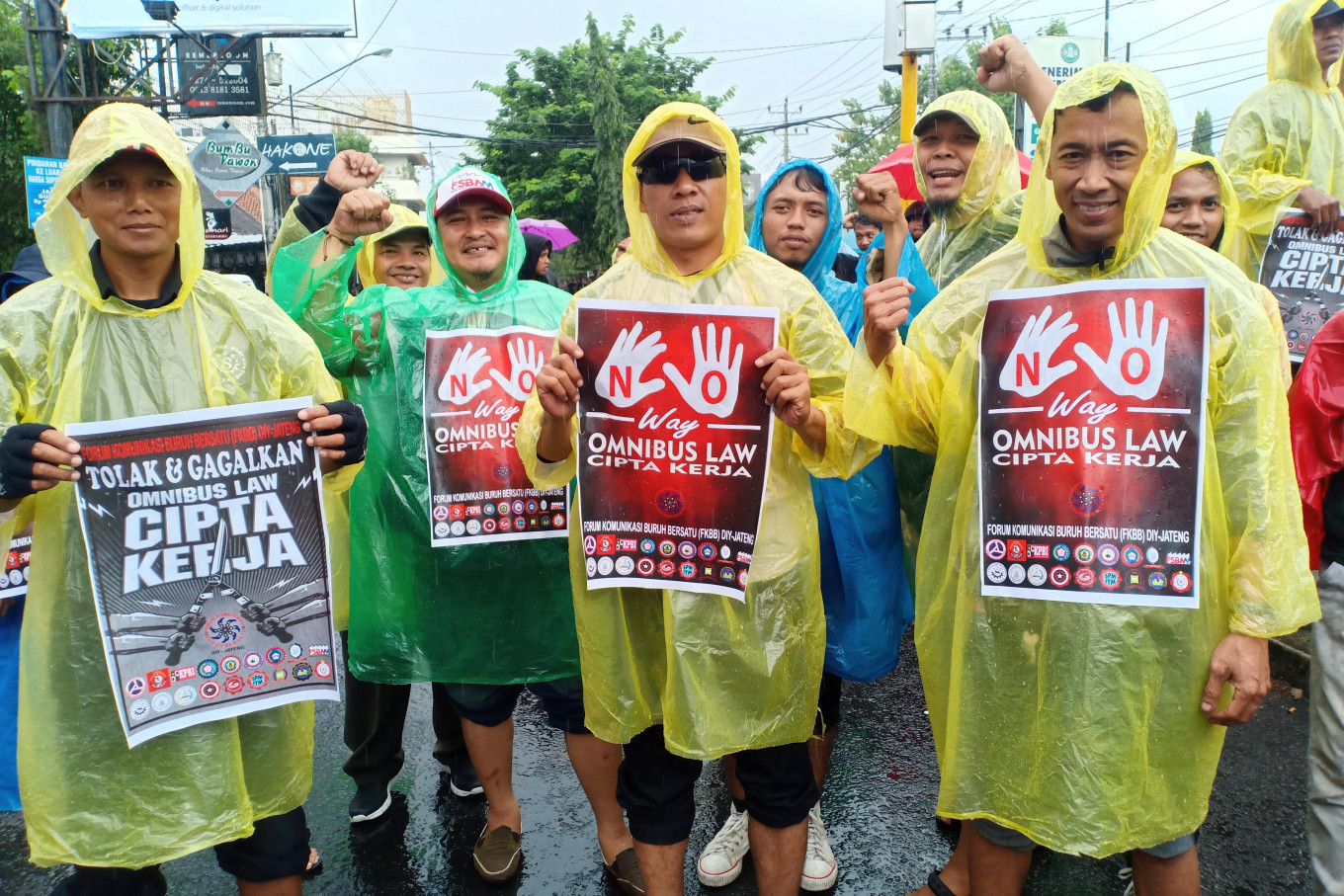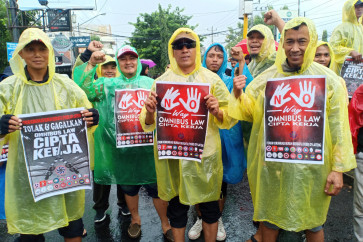Popular Reads
Top Results
Can't find what you're looking for?
View all search resultsPopular Reads
Top Results
Can't find what you're looking for?
View all search resultsOmnibus bill: Is there 'Plan B' for post-pandemic investment?
If the House does not approve the omnibus bill, any massive reform is unlikely in the near future, especially because the government will still be coping with the impact of the pandemic until next year.
Change text size
Gift Premium Articles
to Anyone
 Workers from the Federation of Independent Trade Unions (FSPM) participate in a rally held by the Mobile People's Alliance (ARB) at the junction of Jl. Gejayan in Yogyakarta on Monday, March 9. Workers oppose the omnibus bill on job creation as they argue the bill is detrimental to labor interests. (JP/Bambang Muryanto)
Workers from the Federation of Independent Trade Unions (FSPM) participate in a rally held by the Mobile People's Alliance (ARB) at the junction of Jl. Gejayan in Yogyakarta on Monday, March 9. Workers oppose the omnibus bill on job creation as they argue the bill is detrimental to labor interests. (JP/Bambang Muryanto)
P
resident Joko “Jokowi” Widodo said in May that the COVID-19 curve must be flattened “by any means necessary” so the economy could restart in June. Still, the economy is not likely to snap back the minute businesses start reopening. Many corporations will hold on to their capital and decline to invest in their business lines for fear of a second crisis.
Meanwhile, the government is trying to offer reassurances that the omnibus bill on job creation, currently under deliberation at the House of Representatives, will help make things much easier for businesses and by default, will boost investment.
But it is not clear how quickly the House can approve this bill, as the nation and the government are preoccupied with the war on COVID-19. The House is now in recess and its next session starts in mid-June.
If the House does not approve the omnibus bill, any massive reform is unlikely in the near future, especially because the government will still be coping with the impact of the pandemic until next year.
Meanwhile, companies around the world will alter their supply chains in the wake of the COVID-19 crisis so they are less dependent on China and toward a more diversified supply chain. Manufacturers across several industries have begun to relocate their operations out of China. Indonesia, the most heavily populated ASEAN member, is also looking to join the competition for these factory relocations along with Vietnam, Malaysia and Thailand.
Is there a way out? Earlier this year, Indonesia issued Government Regulation (PP) No. 1/2020 on Special Economic Zone (SEZ) management and operations and PP No. 12/2020 on SEZ facilities. In a time when speed and flexibility are essential, SEZs may serve as a logical starting point for a Plan B to the omnibus bill as Plan A. These new regulations are designed to accelerate and smooth the implementation of the 2009 SEZ Law.
An SEZ, in a nutshell, is an area designated by the government that has a different set of rules from the region where it is located. An SEZ can be a very large zone, like Shenzhen in China, which has 20 million people, or it can be a very small zone with clusters of industrial parks. These zones are typically focused on attracting foreign direct investment and tend to offer manufacturing incentives.

















